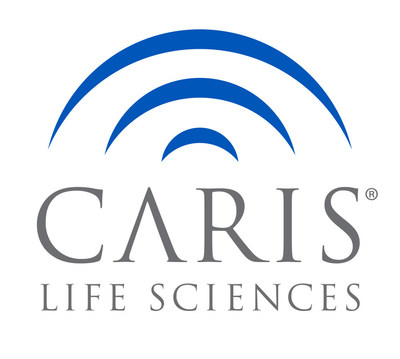Caris Data Validates TET2 Clonal Hematopoiesis as a Biomarker for Enhanced Immunotherapy Response
Rhea-AI Summary
Caris Life Sciences (NASDAQ: CAI) announced validation of TET2 clonal hematopoiesis (CH) as a biomarker associated with improved response to immune checkpoint inhibitor (ICI) therapy in solid tumors.
The study, led at MD Anderson and published in Cancer Cell, combined laboratory models with analysis of Caris' clinico-genomic database covering ~36,000 NSCLC and >25,000 colorectal cancer patients to show TET2-CH links to enhanced macrophage antigen presentation and better ICI outcomes.
The company highlights potential future use of CH to guide therapy selection while noting these findings inform but do not guarantee changes to clinical practice.
Positive
- TET2-CH linked to improved ICI response in solid tumors
- Study published in Cancer Cell, increasing scientific visibility
- Clinical validation used Caris database: ~36,000 NSCLC and >25,000 CRC patients
Negative
- None.
News Market Reaction 14 Alerts
On the day this news was published, CAI declined 3.13%, reflecting a moderate negative market reaction. Argus tracked a peak move of +5.3% during that session. Our momentum scanner triggered 14 alerts that day, indicating notable trading interest and price volatility. This price movement removed approximately $289M from the company's valuation, bringing the market cap to $8.96B at that time.
Data tracked by StockTitan Argus on the day of publication.
The study's purpose was to investigate how immune cells carrying CH-derived TET2 mutations influence solid tumor immunology and respond to ICI therapy. Dr. Sharma and Shelley Herbrich, Ph.D., postdoctoral fellow in Dr. Sharma's lab, explored the underlying mechanisms using TET2-mutant laboratory models, which revealed how these mutations shape immune dynamics within the tumor microenvironment.
To validate the clinical relevance of these findings, the study leveraged Caris Life Sciences' extensive clinico-genomic database, analyzing outcomes in a real-world cohort of nearly 36,000 patients with non-small cell lung cancer (NSCLC) and over 25,000 colorectal (CRC) cancer patients. This dual approach provided insight and large-scale evidence supporting TET2-CH as a potential biomarker for enhanced ICI response. Importantly, these findings represent a major observation that directly ties clonal hematopoiesis to therapy outcomes in solid tumors, suggesting a future role of CH for driving therapy selection.
"These findings represent a major step forward in understanding how clonal hematopoiesis influences cancer immunology," said Milan Radovich, Ph.D., Senior Vice President, Chief Scientific Officer at Caris. "It further demonstrates that we are only scratching the surface on the potential applications of CH, namely a novel function of CH as a predictive therapeutic biomarker that can be used to improve patient outcomes."
"These results are encouraging, highlighting TET2-mutated clonal hematopoiesis as a potential biomarker to select patients who are more likely to respond to immunotherapy," said Padmanee Sharma, M.D., Ph.D., professor of Immunology and Genitourinary Medical Oncology at MD Anderson and director of scientific programs for the Allison Institute.
The publication can be viewed in its entirety on the Caris Life Sciences website.
About Caris Life Sciences
Caris Life Sciences® (Caris) is a leading, patient-centric, next-generation AI TechBio company and precision medicine pioneer that is actively developing and commercializing innovative solutions to transform healthcare. Through comprehensive molecular profiling (Whole Exome and Whole Transcriptome Sequencing) and the application of advanced AI and machine learning algorithms at scale, Caris has created the large-scale, multimodal clinico-genomic database and computing capability needed to analyze and further unravel the molecular complexity of disease. This convergence of next-generation sequencing, AI and machine learning technologies, and high-performance computing provides a differentiated platform to develop the latest generation of advanced precision medicine diagnostic solutions for early detection, diagnosis, monitoring, therapy selection and drug development.
Caris was founded with a vision to realize the potential of precision medicine in order to improve the human condition. Headquartered in
Forward Looking Statements
This press release contains forward-looking statements within the meaning of the federal securities laws. All statements other than statements of historical facts contained in this press release are forward-looking statements, including statements regarding our business, solutions, plans, objectives, goals, industry trends, financial outlook and guidance. In some cases forward-looking statements can be identified by words such as "may," "will," "should," "would," "expect," "plan," "anticipate," "could," "intend," "target," "project," "potential," "contemplate," "believe," "estimate," "predict," "potential" or "continue" or similar expressions.
You should not rely upon forward-looking statements as predictions of future events. Although we believe that the expectations reflected in these forward-looking statements are reasonable based on information currently available to us, we cannot guarantee that the future results, discoveries, levels of activity, performance or events and circumstances reflected in forward-looking statements will be achieved or occur. Forward-looking statements involve known and unknown risks and uncertainties, some of which are beyond our control. Risks and uncertainties that could cause our actual results to differ materially from those indicated or implied by the forward-looking statements in this press release include, among other things: developments in the precision medicine industry; our future financial performance, results of operations or other operational results or metrics; development, validation and timing of future solutions; commercial market acceptance for our solutions and our ability to meet resulting demand; the rapidly evolving competitive environment in which we operate; third-party payer reimbursement and coverage decisions related to our solutions; our ability to protect and enhance our intellectual property; regulatory requirements, decisions or approvals (including the timing and conditions thereof) related to our solutions; reliance on third-party suppliers; our compliance with laws and regulations; the outcome of government investigations and litigation; risks related to our substantial indebtedness; and our ability to hire and retain key personnel as well as risks, uncertainties, and other factors described in the section titled "Risk Factors" and elsewhere our Quarterly Report on Form 10-Q filed with the Securities and Exchange Commission on August 12, 2025, and in our other filings we make with the SEC from time to time. We undertake no obligation to update any forward-looking statements to reflect changes in events, circumstances or our beliefs after the date of this press release, except as required by law.
Caris Life Sciences Media:
Corporate Communications
CorpComm@CarisLS.com
214.294.5606
![]() View original content to download multimedia:https://www.prnewswire.com/news-releases/caris-data-validates-tet2-clonal-hematopoiesis-as-a-biomarker-for-enhanced-immunotherapy-response-302597685.html
View original content to download multimedia:https://www.prnewswire.com/news-releases/caris-data-validates-tet2-clonal-hematopoiesis-as-a-biomarker-for-enhanced-immunotherapy-response-302597685.html
SOURCE Caris Life Sciences








